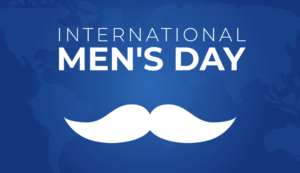International Men’s Day will be marked this year on November 19th which is a celebration of the positive value men bring to their communities, families and the world.
During the run-up to this day, the topic of men’s mental health and wellbeing is heavily discussed. In England, around one in eight men has a common mental health problem such as depression, anxiety, panic disorder or obsessive-compulsive disorder (OCD).
This discussion is important and is an opportunity for HR and business leaders to review how their business health and wellbeing initiatives resonate with male employees.
To make a real change towards improving men’s mental health, HR and leadership teams need to take relevant action to prioritise men’s mental health.

Below are our top tips to encourage a positive approach to men’s mental health in the workplace.
Encourage physical exercise
Physical health has been proven to massively impact mental health by improving your sleep and giving you more energy.
A sense of togetherness can be created through workplace exercise, and it helps break down some of the barriers that usually exist in the workplace. Creating a bond between colleagues will contribute to a positive change in mental health. Consider setting up a workplace running club, putting on yoga or personal training sessions.
Focus on wellbeing
Wellbeing needs to be encouraged and driven from the top of the business. As business and HR leaders, you should ensure that wellbeing stays a top priority.
By getting senior leadership teams involved with mental health initiatives, other employees are likely to follow and take steps to focus on their mental health.
For HR teams, this means simple actions need to be taken to make wellbeing a priority for men. Only then can the entire workforce be more engaged, happier, and productive.
Inclusive health messages
The workplace provides an excellent opportunity to promote awareness and action on health, particularly for men.
If programmes in the community are female-orientated, men can feel awkward joining up. While they may be nervous about proactively seeking medical advice, it doesn’t mean they aren’t interested in finding out more. Work can offer a community setting where men feel comfortable and can be exposed to relevant messages.
Signposting to online portals or website links enables men to get confidential information at a time that suits them.
Tips for making health messages inclusive:
- Think about the language you use – make sure it is not overly feminine or masculine.
- Make information available online and allow employees to access it anonymously.
- Ensure employees can access information at home as well as at work.
- Personalise messages as much as possible to create a higher degree of relevancy, however, ensure that you do this in a sensitive way.
- Ask employees what they are interested in and want to know more about to build a dialogue.
For additional support and information on how to support men’s mental health in the workplace, seek an independent HR advisor for guidance.


